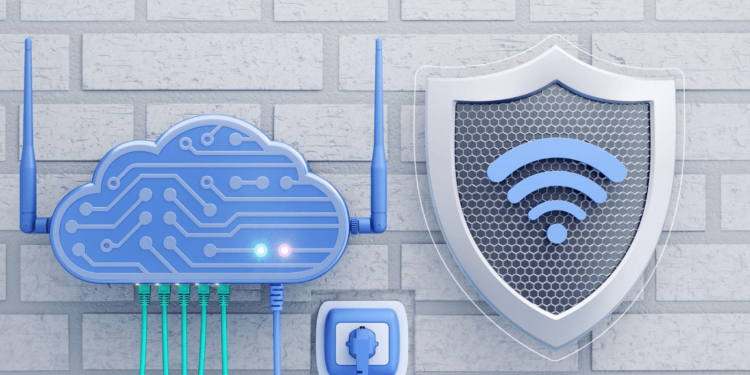The world today is leaning more toward digital innovations to advance its advocacies. With that being said, safeguarding personal data has never been more crucial. ZTE, a global leader in telecommunications and information technology, is at the forefront of setting international standards in privacy protection. Here’s a closer glimpse at how ZTE security champions this.
By adhering to globally recognized certifications like ISO/IEC 27701 and ePrivacy, ZTE demonstrates its unwavering commitment to ensuring the security and privacy of its customers’ sensitive information. Through its comprehensive privacy protection framework, ZTE is leading the charge in creating a safer digital landscape for all. Let’s discuss.
ZTE Security: Upholding Business Ethics in the Digital Age
ZTE is devoted to upholding ethical standards and ensuring business sustainability through compliance with global privacy laws and regulations.
Compliance with Global Privacy Laws
The technology company strictly adheres to privacy protection laws across its operating regions, including the General Data Protection Regulation (GDPR) and China’s Cybersecurity Law. This commitment is reflected in its comprehensive compliance framework, which integrates legal requirements into its business processes.
By establishing a systematic compliance mechanism and regularly updating its privacy policies, the company ensures that it meets the evolving demands of privacy legislation while fostering trust with stakeholders.
Protecting Privacy Rights Together
It also actively respects and protects user privacy rights by implementing robust privacy practices. The company emphasizes transparency, ensuring users understand how their personal data is collected, used, and protected.
Its approach includes integrating privacy protection into product design and service delivery, thereby prioritizing user consent and data security. By collaborating with industry partners and engaging in public forums, it is able to promote a culture of privacy awareness and ethical data handling, reinforcing its role as a responsible player in the digital landscape.
Integrating Privacy into Product Design
ZTE integrates privacy protection into its product design, ensuring that user data is safeguarded throughout its research and development (R&D) and operational processes. This commitment is evident in various privacy features embedded in its products and services.
Here are its product privacy features:
Personal Privacy Protection
● Sensitive Operation Prompt and Recording: ZTE products alert users when sensitive operations are performed, ensuring transparency and enabling users to make informed decisions about their data.
● Private Data Replacement: This feature replaces sensitive data with anonymous identifiers, minimizing the risk of exposure while still allowing functionality.
● Sensitive Permission Control: ZTE empowers users by providing granular control over permissions, allowing them to manage which applications can access their sensitive information.
● Private Space: A dedicated area within ZTE devices that securely stores personal data, ensuring that sensitive information is compartmentalized and protected from unauthorized access.
● Approximate Location: Instead of sharing precise location data, ZTE offers approximate location services, enhancing user privacy while still delivering location-based functionalities.
● Clipboard Data Protection: ZTE devices monitor clipboard activities, preventing unauthorized access to copied sensitive information, thus enhancing security.
● Photo Protection: Users can secure their photos with encryption, ensuring that only authorized individuals can view their personal images.
● App Lock: This feature allows users to lock specific applications with passwords or biometric authentication, adding an extra layer of security to sensitive apps.
System Security
● Screen Lock Password: ZTE devices require a password to unlock the screen, protecting user data from unauthorized access.
● Biometric Identification: Utilizing fingerprint and facial recognition technology, the telecommunications firm is able to secure access to devices and applications, enhancing user convenience and security.
● Virus Scan: It also incorporates real-time virus scanning to detect and eliminate potential threats, safeguarding user data from malware.
● Anti-Fraud Center: This proactive system monitors for fraudulent activities, alerting users and providing guidance on how to protect their information.
● Spam Blocker: ZTE devices feature built-in spam blocking capabilities, reducing unwanted communications and protecting user privacy.
● WLAN Security Scan: It also conducts security scans on Wi-Fi networks to identify vulnerabilities, ensuring safe connections for users.
● Secure Keyboard Entry: This feature protects users’ keystrokes from being intercepted, ensuring that sensitive information, such as passwords, remains confidential.
● App Security Scan: Lastly, the company conducts security scans on apps downloaded outside the official App Center during installation to identify potential illegal sources and vulnerabilities, ensuring that users are protected from harmful applications.
Ensuring User Privacy: A Core Focus
ZTE is deeply committed to safeguarding user data through comprehensive privacy measures and user-centric policies. By prioritizing transparency and user control, it ensures that individuals are fully informed about how their data is collected and used. The company implements robust security protocols and adheres to global privacy standards, reflecting its dedication to protecting user privacy.
Through continuous improvement and innovation, ZTE aims to create a secure environment where users can confidently engage with its products and services.
Constructing a Strong Privacy Protection Framework
ZTE remains dedicated to constructing a robust privacy protection framework that ensures compliance and security across its operations. This comprehensive, end-to-end system integrates privacy measures into every stage of product development and service delivery.
By adhering to international standards, such as ISO/IEC 27701:2019, the company guarantees that personal data is managed securely and responsibly. Its framework emphasizes continuous improvement, risk management, and compliance with global privacy laws, fostering trust among users and stakeholders.
Through proactive engagement with industry partners and a commitment to transparency, ZTE aims to create a sustainable ecosystem that prioritizes user privacy and data protection in the digital age.











































































